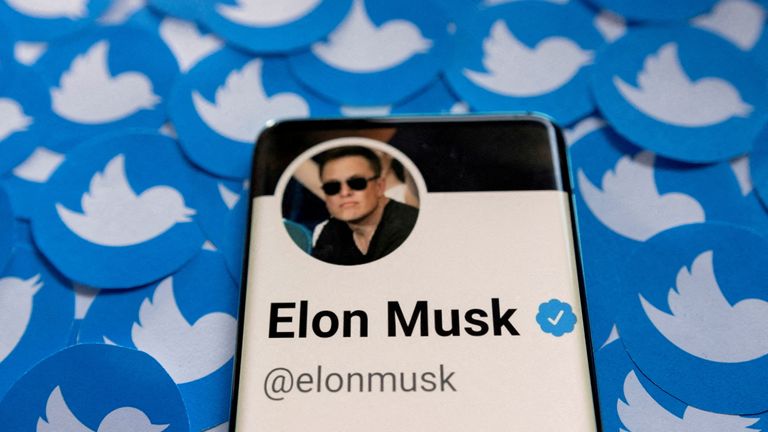Rajkotupdates.news:deal-got-in-trouble-due-to-fake-spam-account-of-twitter
Rajkotupdates.news:deal-got-in-trouble-due-to-fake-spam-account-of-twitter, In the world of social media, the use of fake accounts for various purposes has become increasingly common. Unfortunately, this practice can have serious consequences for individuals and businesses alike. One example of this occurred in 2019 when Deal, a popular discount retailer, found itself in trouble due to a fake spam account on Twitter.
Deal, which is known for offering deep discounts on a wide range of products, had been active on Twitter for several years prior to the incident. The company had built up a sizable following on the platform and regularly used it to promote its deals and engage with customers.

However, in early 2019, Deal began to notice a strange trend on Twitter. A fake account with a similar name and profile picture to its own had begun to spam its followers with messages that were clearly not from the company. The fake account used the same branding as Deal, but its tweets were often nonsensical or contained links to malicious websites.
Rajkotupdates.news:deal-got-in-trouble-due-to-fake-spam-account-of-twitter, Deal quickly realized that this fake account was causing confusion among its followers and potentially damaging its reputation. The company tried to report the account to Twitter, but found that the process was slow and ineffective. Despite multiple attempts to have the account taken down, it remained active for several weeks.

As the fake account continued to spam Deal’s followers, the situation escalated. Customers began to complain about receiving unwanted messages and some even threatened to boycott the company. Deal’s management team was forced to spend a significant amount of time and resources responding to these complaints and trying to address the situation.
Eventually, Deal was able to get the fake account removed from Twitter, but the damage had already been done. The incident had caused significant harm to the company’s reputation and had the potential to impact its bottom line. Customers who had been turned off by the spam messages may have chosen to shop elsewhere, and potential customers who were considering Deal may have been scared off by the negative publicity.
![Elon Musk swears he really wants to buy Twitter this time [Update: Twitter intends to accept] - 9to5Mac](https://9to5mac.com/wp-content/uploads/sites/6/2022/10/elon-musk-twitter.jpg?quality=82&strip=all&w=1600)
So, what can we learn from this incident? First and foremost, it is important for businesses to be vigilant about the use of fake accounts on social media. If you notice a fake account using your branding or messaging, it is important to report it to the platform as soon as possible. This can help to limit the damage and prevent further harm to your reputation.
Secondly, businesses should have a plan in place for dealing with social media crises. When a negative situation arises, it is important to respond quickly and transparently, and to communicate with customers in a clear and honest way. This can help to build trust and prevent further damage to your reputation.

In the case of Deal, the company was able to recover from the incident by taking these steps. It issued a public statement acknowledging the situation and apologizing to customers for any inconvenience caused. It also took steps to ensure that its social media accounts were secure and that it had a plan in place for dealing with similar situations in the future.
Overall,
Rajkotupdates.news:deal-got-in-trouble-due-to-fake-spam-account-of-twitter, the incident involving Deal and the fake spam account on Twitter serves as a cautionary tale for businesses of all sizes. It highlights the importance of being vigilant about social media security and having a plan in place for dealing with crises. By taking these steps, businesses can help to protect their reputation and maintain the trust of their customers.
FAQ
Q: What happened to Deal on Twitter?
A: Deal, a popular discount retailer, found itself in trouble in 2019 due to a fake spam account on Twitter. The fake account used the same branding as Deal, but its tweets were often nonsensical or contained links to malicious websites. The situation caused confusion among Deal’s followers and potentially damaged its reputation.
Q: How did Deal respond to the situation?
A: Deal tried to report the fake account to Twitter, but found that the process was slow and ineffective. As the fake account continued to spam Deal’s followers, the company’s management team was forced to spend a significant amount of time and resources responding to customer complaints and trying to address the situation. Eventually, Deal was able to get the fake account removed from Twitter, and it issued a public statement acknowledging the situation and apologizing to customers.
Q: What can businesses learn from Deal’s experience?
A: Businesses can learn several important lessons from Deal’s experience. First, it is important to be vigilant about the use of fake accounts on social media and to report them as soon as possible. Second, businesses should have a plan in place for dealing with social media crises, including responding quickly and transparently and communicating with customers in a clear and honest way. Finally, businesses should take steps to ensure that their social media accounts are secure and that they have a plan in place for dealing with similar situations in the future.
Q: How can businesses protect their reputation on social media?
A: Businesses can protect their reputation on social media by being vigilant about social media security, monitoring their accounts for signs of fake or malicious activity, and having a plan in place for dealing with crises. It is also important to respond quickly and transparently to negative situations and to communicate with customers in a clear and honest way. By taking these steps, businesses can help to maintain the trust of their customers and protect their reputation.
Must read=Rajkotupdates.news:pm-modi-india-plans-to-launch-5g-services-soon




